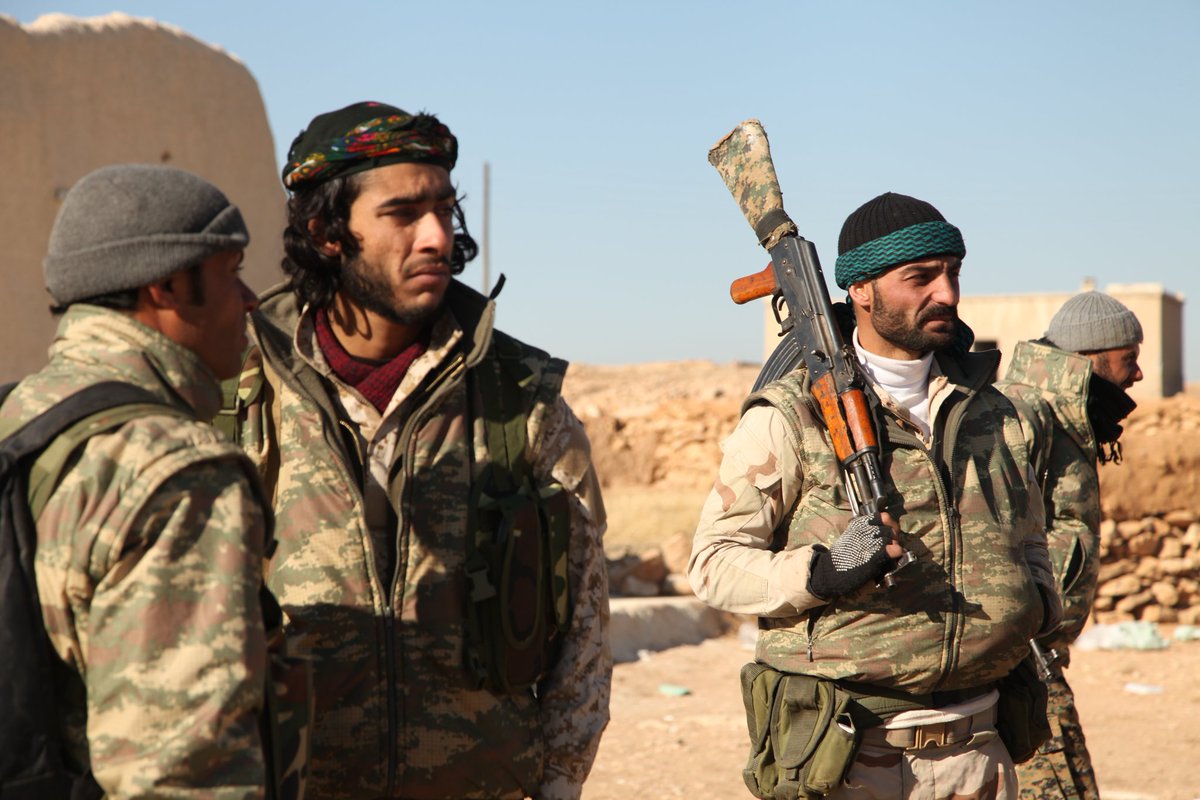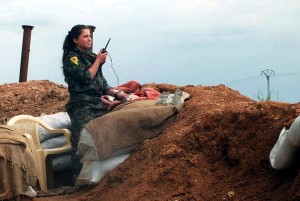by Paul Iddon
Kurds in Syria are currently negotiating their future with the Syrian regime in Damascus. They want the decentralisation and democratisation of Syria, which will ensure their own continued self-rule.
While it’s unlikely they will achieve such an ambitious goal it is equally unlikely that Syrian President Bashar al-Assad can expect to once again relegate them to their pre-war status.
The Syrian Kurds did not join the uprising against Assad, which is one reason it’s unclear if Assad will revert to brute force readily, as he has with other groups across the country. The Kurds briefly did mount an uprising against the regime in March 2004, after a football match in Qamishli degenerated into violence, and Assad sent in tanks and helicopters to suppress them.
The Syrian Kurds were long disenfranchised and marginalised, thousands weren’t able to attain Syrian citizenship. Damascus even went so far as to deny that they existed.
Following six years of de-facto self-rule – in which droves of Kurdish youth, both male and female, sacrificed themselves to defend their homeland against Islamic State – it’s clear that they are have established themselves in ways that impossible to reverse or undo.
Michael Gunter’s 2014 book on the Syrian Kurds is entitled ‘Out of Nowhere‘ in reference to the fact that the Syrian Kurds were in almost total obscurity before the Syrian conflict. In many ways the historical experience of their Iraqi Kurdish counterparts is an informative precedent.
Although the Iraqi Kurds fought a nine year war with Baghdad for self-rule throughout the 1960s they were barely known in the West. Even when the Nixon administration participated in a covert programme with the Shah’s Iran and Israel to support their struggle against Baghdad in the mid-1970s, the administration had little understanding about who the Kurds were.
“We did not know much about the Kurds – we thought they were some kind of hill tribe,” then Secretary of State Henry Kissinger later admitted.
In the 1980s, when Baghdad slaughtered over 180,000 Kurds in the ‘Anfal’ campaign, and infamously murdered 5,000 in a single day with poison gas in the town of Halabja, it was still difficult for the Kurds to garner international attention and support.
Najmaldin Karim, the former Kurdish governor of Kirkuk, once told me how difficult it was to get attention from the US Congress back then, since in “those years nobody knew the Kurds” in contrast to now, when Kurds “are known all over the world” for both their bravery and the atrocities committed against them.
After Iraq’s defeat in the 1991 Gulf War, it focused its efforts on subduing Shia Arab and Kurdish revolts. Images broadcast on CNN of the destitute Kurdish refugees fleeing in terror from Saddam Hussein’s helicopter gunships saw public pressure put on the US to protect them from more massacres. A no-fly zone was established and Iraqi Kurdish autonomy incubated in the process.
“You are good strugglers, brave men,” Saddam Hussein told Kurdish leader Jalal Talabani at the time. “We thought we defeated you, we thought you’d never come back, and now you are on the ground. I’m now recognising your rights.”
After the Hussein regime overthrow in 2003 Iraqi Kurdistan became a legal and recognised autonomous region within the new federal Iraq. In late 2017, after Iraqi Kurds voted overwhelmingly in favour of independence in a referendum, Baghdad sought to curtail the region’s autonomy by closing its airspace and seizing most of the disputed territories it had with the autonomous region, most notably Kirkuk.
Despite this, Kurdish autonomy endured and now relations are once again being normalised. When Iraqi Prime Minister Haider al-Abadi campaigned across Kurdistan earlier this year – the first Iraqi premier to do so – he was largely ignored and his platform, which essentially advocated for the dissolution of Kurdish autonomy and the reversion to direct governance from Baghdad, dismissed.
It’s clear that after 15 years of autonomy, following the previous 13 years of post-1991 de-facto self-governance, the Iraqi Kurds were are not going to simply give up all that they achieved after generations of struggle without a fight.
None of this is of course completely analogous to the situation for Syrian Kurds who have no recognised entity in the country.
The Syrian Kurds are likely to make some compromises to salvage what they have achieved over the last six years but certainly will not give it all up, and become subjugated under the yoke of Damascus once more without putting up a serious fight.
Paul Iddon is a freelance journalist based in Erbil, Iraqi Kurdistan, who writes about Middle East affairs. Republished, with permission, from The New Arab.






The devil is in the details as far as how the negotiations play out with Assad. But no article on the future of Syrian Kurds is adequate unless addressing the Kurdish-Turkey factors. Hopefully the internal divisions of Syrian Kurds does not undercut their unity to the degree it has fueled the “divide and conquer” approach from Baghdad.
Well, the Kurd problem (and it is a problem for the concerned countries) has to be contextualized. The creation so desired by the West (although refuse the independance of their region at home like Corsica in France) of a Kurdistan is, first of all, to destroy the axis Tehran-Beyrouth and so undermine the influence of Iran in the ME. The kurds, as we see during the independance referendum in Iraq in 2017, are pro-US and pro-Israel. Thus, it will allow to the Atlantis Block to create a base and surround Iran completely. Especially for Israel, it will allow to their planes to strike Iran more readily. Obiously there is no good intention from the Atlantist Block as the 20th et 21st century showed us. I did not mention the others problems like the likely emergence of others centrifuge forces or the amputation of Energy resources (which represent totally 1/4 of money Syrian State) and so on,… .
The Colonel Peters is here to remind us the US funest project as the european did at the begining of th 20th century in San Remo in 1920.
In conclusion, no Kurd country has to be created and Assad has to refuse it for the sake of ME. The same for Irak, they have to refuse and independant Kurdistan. And probably, we will see the kurds in Iran and Turkey who will want the same thing….
Le Troisième Oeil